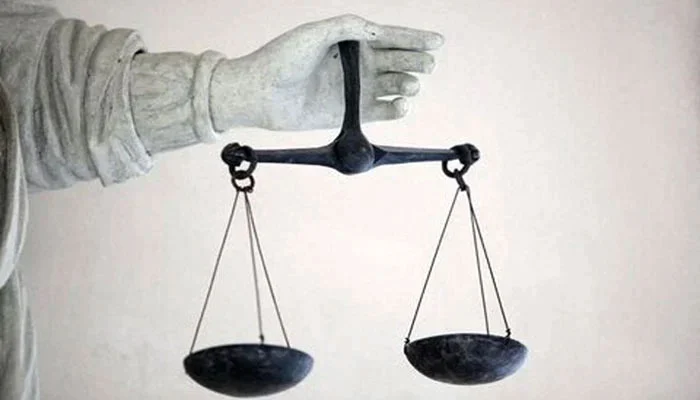Arshad Mahmood Awan
The fabric of any nation is woven from two essential institutions: the state and society. These institutions, while interrelated, must remain distinct to safeguard personal freedoms and autonomy. Blurring the lines between them risks inviting unwarranted state intervention into private lives, familial structures, and social networks, ultimately leading to a degradation of individual rights and an increased potential for state abuse.
The state is fundamentally a construct of the people’s will, designed to serve society, which can be considered its foundational bedrock. However, the dynamic between state and society has historically been fraught with tension. When the state becomes powerful and unaccountable, while society remains weak, the consequences are dire: human and economic development suffer, and citizens find themselves marginalized.
This article draws from the core themes of a book by the same name, aiming to illuminate a critical question: Why is Pakistan struggling to reach its potential? What factors have contributed to its lag in nearly every measurable aspect of citizen empowerment?
Historically, it has been society that molds and defines the state’s powers and responsibilities, ensuring protection against potential abuses of power. This truth can be traced back to ancient civilizations like Mesopotamia, which laid the groundwork for the earliest forms of governance over 7,000 years ago. It also holds relevance in the context of the Continental Congress in 1776, where leaders outlined the relationship between the emerging United States and its people.
The state-society relationship transformed significantly in the wake of old European and Asian empires, where a pattern of conflict and colonization severely undermined social structures. Yet, during the 18th and 19th centuries, societal rights began to gain recognition through social contracts that aimed to hold states accountable. This evolution manifested in peaceful reforms in places like England and Japan, but also through revolutions in France, Russia, and China, which demanded accountability from the ruling powers.
In an unaccountable state, resources are allocated based on power dynamics rather than societal needs. This was starkly illustrated during the Mughal Empire in India, where emperors invested in grandiose structures for themselves, neglecting the educational and health needs of the masses. The rulers didn’t rely on the people for governance, so their priorities reflected their disconnect from them.
The concept of societal development became intertwined with the idea of the social contract, where the state’s obligations to promote the common good became clear. This shift initiated remarkable progress, enabling global GDP to double at unprecedented rates and achieving phenomenal economic growth that continues to this day.
Despite this global evolution, the British colonial experience set the stage for the challenges Pakistan faces. Upon gaining independence in 1947, efforts were made to transition from a colonial power structure to a democratic model, which would redefine the interaction between the state and society. In India, for instance, Dr. B.R. Ambedkar was tasked with drafting a democratic constitution, while in Pakistan, Quaid-e-Azam Muhammad Ali Jinnah emphasized the need for a similar constitutional framework.
Regrettably, these initiatives suffered from inadequate follow-through. Pakistan continued operating under the colonial governance model stipulated by the Government of India Act of 1935—an emblem of unaccountability. Even when the Pakistani Constituent Assembly attempted to establish a democratic framework, it was dissolved by Governor-General Ghulam Muhammad, marking an appalling regression to pre-independence governance styles.
The effects of these decisions laid the groundwork for an unaccountable state, effectively a Leviathan, that evaded the will of the people. Ignoring this root cause hampers Pakistan’s progress, yet international observers are acutely aware of Pakistan’s struggles, often questioning why a resource-rich nation has failed to harness its potential effectively.
When this issue was raised with Lee Kuan Yew, the former Prime Minister of Singapore, he contrasted Singapore’s success—despite its lack of natural resources—with Pakistan’s difficulties. He underscored that societal determination, resourcefulness, and accountability play critical roles in unlocking potential.
Today, Pakistan stands at a concerning 164 out of 193 in human development indices and falls into similarly discouraging rankings concerning GDP per capita, literacy rates, and child mortality. The statistics reveal extensive challenges, including a high number of out-of-school children and inadequate healthcare systems.
The book elaborates on various aspects, divided into seven chapters: governance, economy, energy, democracy, culture, the Muslim world, and the Asian century. Each chapter explores how the disbalance between a robust state and a frail society exacerbates the political, social, and economic empowerment of its citizens.
One of the critical points made is that in democratic governance, the ruler and the ruled share equal rights, though the ruler bears greater responsibilities. When these principles are inverted—when governance lacks accountability—the consequences for society can be dire.
Economically, Pakistan’s system resembles a game of chance, where a privileged minority find favorable ladders, while the majority confront treacherous pitfalls. Energy policies serve as a prime example of mismanagement, leaving citizens grappling with exorbitant costs for basic utilities.
Democratic systems in Pakistan have yet to take firm root, often overshadowed by instability and threats to governance. The ongoing struggle to hold the state accountable to its citizens remains crucial for Pakistan to realize its vast potential.
Overall, addressing the fundamental imbalance between state and society is imperative for Pakistan’s future prosperity. By fostering accountability and redefining governmental responsibilities, the nation can unlock the pathways to development and empowerment that have eluded it for far too long.
















